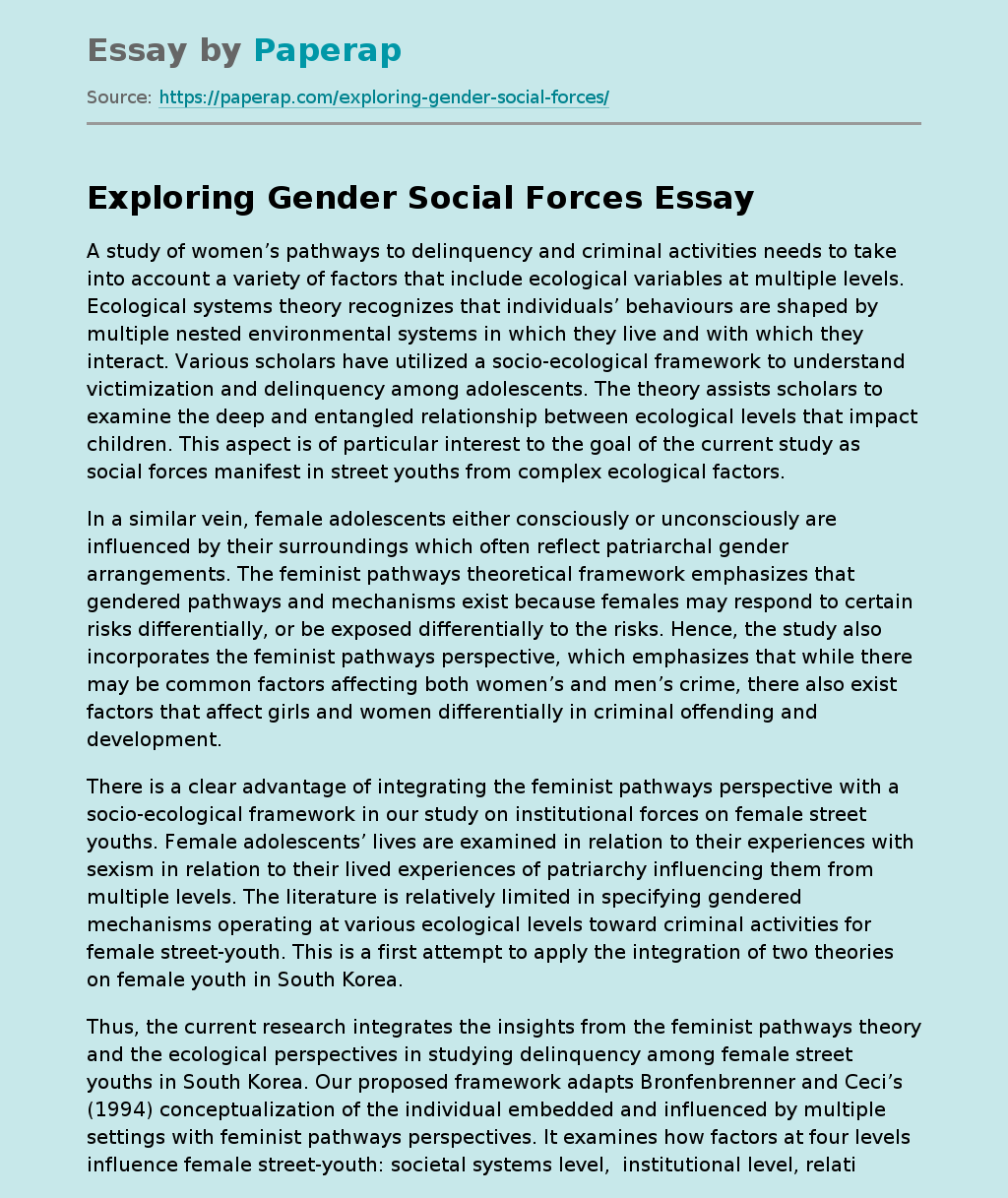Exploring Gender Social Forces
A study of women’s pathways to delinquency and criminal activities needs to take into account a variety of factors that include ecological variables at multiple levels. Ecological systems theory recognizes that individuals’ behaviours are shaped by multiple nested environmental systems in which they live and with which they interact. Various scholars have utilized a socio-ecological framework to understand victimization and delinquency among adolescents. The theory assists scholars to examine the deep and entangled relationship between ecological levels that impact children.
This aspect is of particular interest to the goal of the current study as social forces manifest in street youths from complex ecological factors.
In a similar vein, female adolescents either consciously or unconsciously are influenced by their surroundings which often reflect patriarchal gender arrangements. The feminist pathways theoretical framework emphasizes that gendered pathways and mechanisms exist because females may respond to certain risks differentially, or be exposed differentially to the risks. Hence, the study also incorporates the feminist pathways perspective, which emphasizes that while there may be common factors affecting both women’s and men’s crime, there also exist factors that affect girls and women differentially in criminal offending and development.
There is a clear advantage of integrating the feminist pathways perspective with a socio-ecological framework in our study on institutional forces on female street youths. Female adolescents’ lives are examined in relation to their experiences with sexism in relation to their lived experiences of patriarchy influencing them from multiple levels. The literature is relatively limited in specifying gendered mechanisms operating at various ecological levels toward criminal activities for female street-youth.
This is a first attempt to apply the integration of two theories on female youth in South Korea.
Thus, the current research integrates the insights from the feminist pathways theory and the ecological perspectives in studying delinquency among female street youths in South Korea. Our proposed framework adapts Bronfenbrenner and Ceci’s (1994) conceptualization of the individual embedded and influenced by multiple settings with feminist pathways perspectives. It examines how factors at four levels influence female street-youth: societal systems level, institutional level, relationship/interpersonal level, and individual/intrapersonal level. Social norms can be seen as existing at or being influenced by all four of these levels. For this conceptualization, they are described at the institutional level with examples of how policies and interventions incorporate social norms and interact with relationship/interpersonal levels to influence them. In addition, there is the concept of the chronosystem, i.e., the dimension of time, which speaks to the influence of both change and constancy in a child’s environment throughout their development.
Exploring Gender Social Forces. (2021, Dec 10). Retrieved from https://paperap.com/exploring-gender-social-forces/

